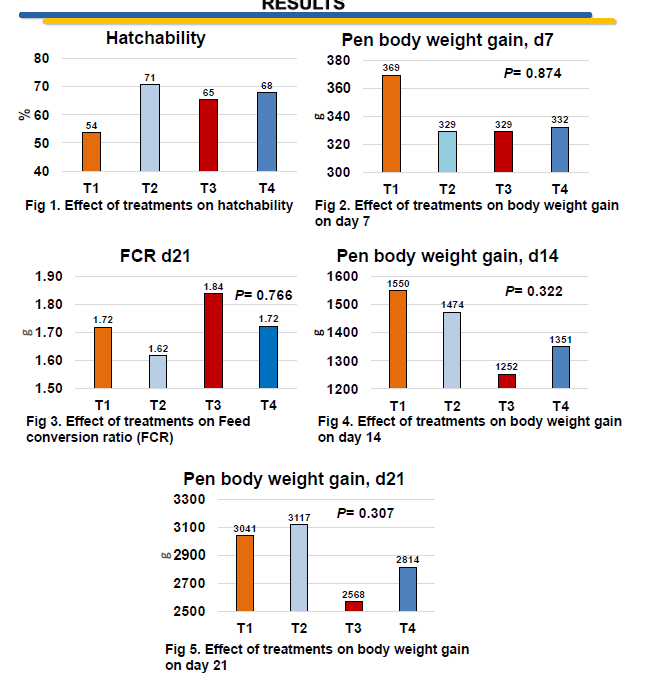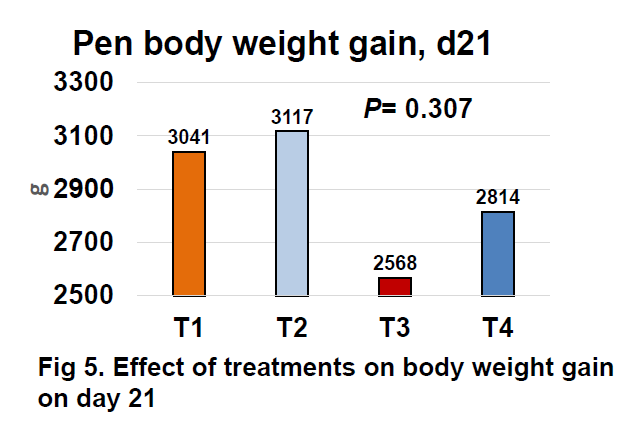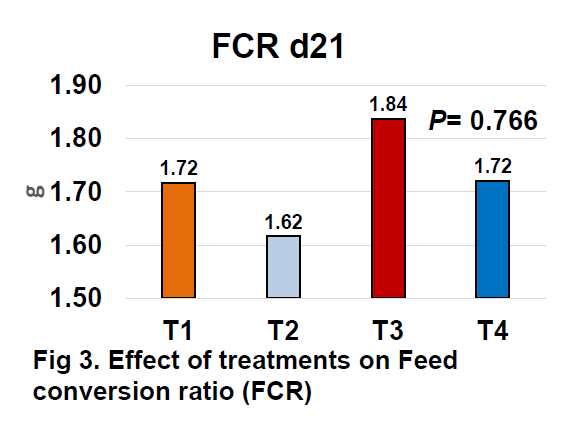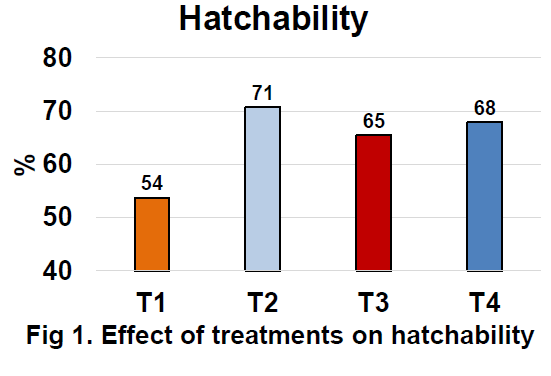Tittle: Effect of turning on preincubation heating in fertile eggs from a flock 45 weeks of age
Jordan Smith* and Oscar Tejeda1
1 Faculty advisor
Physiological zero is a term that describes the physiological state of the chicken embryo in which the cellular activity has been reduced to a minimum. Storage of eggs before incubation is a common practice in the poultry industry, that ensures the synchronized hatchability of eggs from different flocks. Nevertheless, long storage can negatively affect hatchability and chick survival. Therefore, we conducted an experiment to understand the role of preincubation heating on hatchability and post-hatch growth performance. A total of 336 fertile eggs from a 45-week-old flock were divided into 4 treatments. T1 eggs were stored for 4 days; T2 eggs were stored for 10 days without turning; T3 eggs were stored for 10 days and were exposed to preincubation heating for 5 hours at 86 F on embryonic day 5 and turned every 8 hours before incubation; T4 eggs were stored for 10 days and were exposed to preincubation heating for 5 hours at 86 F on embryonic day 5. Statistical analyses were conducted using SPSS statistical analysis version 21. Hatchability was measure at hatch, growth performance was measured on days 7, 14, and 21. No statistical differences were observed in any of the parameters evaluated during the experiment (P > 0.05). However, numerical differences were observed in hatchability where eggs from T2 had the highest hatchability rate (71%). Body weight gain was numerically lower for birds from T3. Birds from T3 also had a numerically higher FCR. In conclusion, no statistical differences were observed in terms of performance, however, preincubation heating and long-term storage seems to affect hatchability rates and post-hatch growth performance in chickens.
Keywords: chicken, preincubation heating, turning, hatchability
Graphs of results
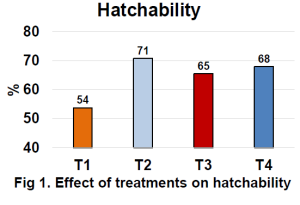
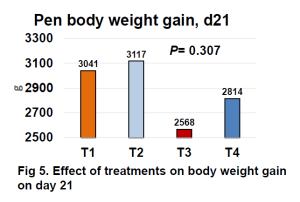
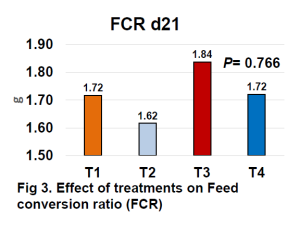
Questions?
Contact Dr. Oscar Tejeda

